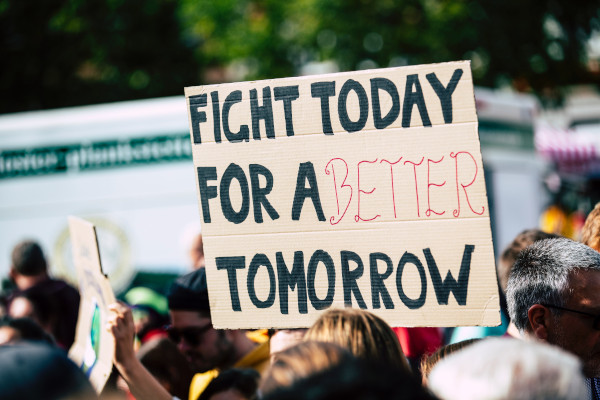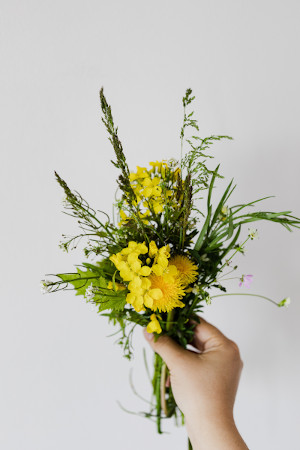Last time, I wrote about options and that we always should be aware of the full range of choices before taking any actions. After all, our actions are how we interact with the world according to our values. More on actions and values next week. An easy example to demonstrate options is by taking a look at elections and the choices we have in the whole process. First though, let’s look at democracy.
Democracy
Democracy is a system of government in which the citizens exercise power directly or elect representatives from among themselves to form a governing body, such as a parliament. [Wikipedia – Democracy]
This description sounds great given that each person can use their voice to choose who governs them. They can even put themselves forward to be voted for. The intended outcome is a government that acts in the best interest of its constituency since they are part of the electorate themselves.
In theory, this concept works well and people can choose representatives from a varied range of options including standing for office themselves. In practice, democracy is hard to get right. The Economist wrote an excellent essay on the topic. Since the first attempts at democracy, a number of countries tried to implement democratic systems and failed; with Athens’ first democracy only lasting 200 years.
Elections
Elections do not equal democracy even though they are used in all current democracies. The first democracy in Athens chose sortition to select people and that means that political roles were filled randomly from the pool of self-selected candidates. If this lottery system were in use today, it would allow for unbiased equality since every person who puts themselves forward has an equal chance of being picked irrespective of race, gender, religion etc. Back in Athens, only males of 30 years or older were allowed and the “winners” of the lottery would still be examined for suitability for their year in office.
Similarly, some roles where excluded from sortition entirely and were filled by scrutinising the skills of individuals and matching them to a role to get the best possible person [The American School of Classical Studies at Athens]. Sortition also has drawbacks such as lack of enthusiasm on the part of the selected or the fact that there is no long term accountability.
Last but not least, would you be happy if your government were chosen by luck?
Option 1 – abstention
The topic of accountability brings us back to modern day democracy where it is taken care of by elections. Every person gets a vote of equal power, elections are held regularly and votes are counted and re-counted if required. Again, there are issues with elections such as voter fraud, sham elections or abuse of power of the elected representatives. Furthermore, voters don’t always support any of the possible choices or are generally unsatisfied with the system or simply don’t get the time off from work to go to the voting booth. Therefore, many voters abstain and don’t even turn up for elections. This is our option 1 – abstention which means that you choose not to execute your right to vote. One quote to remember when thinking of abstaining:
“One of the penalties for refusing to participate in politics is that you end up being governed by your inferiors.”
Plato
Abstention is one reason why voting is compulsory in 22 countries worldwide. In some cases, a fine is enforced, for example Australia charged $170 in 2013 which resulted in a voter turnout of 92%. Prior to its introduction, Australia had an average voter turnout of around 70%. Similarly, turnout dropped by 20% in the Netherlands and 30% in Venezuela after compulsory voting was abolished.
Option 2 – protest vote
The main criticism of compulsory voting is the fact that people are forced to vote whether they support a political party or not. In countries with a preference voting system where each option is given a ranking, this can result in what is know as a donkey vote. This means that votes simply number the candidates in the order of appearance. In Australia, this ultimately led to changes in the way ballot papers are created. Nowadays, candidates are listed in a random order and voter education was increased.
Another version of voluntarily opting out at the ballot box is option 2 – the protest vote. This means that you choose to hand in a blank vote, invalidate the ballot or select a minority representative who will have no impact on the outcome. It is often intended as a signal of dissatisfaction with the system or the available candidates from which to choose from. However, the outcome is a spoilt vote which increases the importance of every other valid vote. In Joseph de Maistre’s words:
“Every country has the government it deserves.”
Option 3 – vote for what you think is right
This finally leads us to option 3 – vote for what is right. Make up your own mind, listen to the build up of the elections and go to the ballot box. Easy.
Having said that, it is important to know what you vote for. For example in the 1990s, Nathan Zohner, 14, successfully encouraged students and parents to vote for a ban on “Dihydrogen monoxide” which is nothing other than the chemical name for water. The Dihydrogen monoxide hoax‘s website has been visited over 15 million times and is an example of what can be accomplished when voters don’t understand the data presented.
This lack of knowledge and research is an extreme example, however, it is not far off what happens in real life when it comes to politics. People hear soundbites of well crafted speeches which ultimately say very little about actual issues, upcoming policies and plans which will impact the voters directly. For example, in 2016, the UK voted in a referendum on whether to remain in the European Union or leave. No verifiable figures on the financial impact were presented. With hindsight, some claims during the run up to the referendum have been fact checked and found to be false.
This means that you need to know and understand your options. What election are you taking part in? What is the context and impact of your vote? How can you hold the elected to account during the term? What does the political party stand for? What does the person stand for? Do the plans of the political party and of the representative match up?
Last but not least, with knowledge on your side, you can choose the updated option 3 – vote for what you know the best option to be.
Alternatively – get active, get talking
If neither of the above options is for you, then I recommend that you get active yourself. Get involved in politics, join a party or set up a new party yourself like Beppe Grillo, a comedian in Italy who set up the FiveStarMovement in 2009, led it until Sep 2017 and only pulled out last week on 24 Jan 2018.
If that looks like too much effort, then at least have conversations with your friends, family and colleagues about what they think about upcoming elections. Compare it to your own thinking and research differences and further arguments for your points and also for the other side. If you are really adventurous, ask someone who you usually wouldn’t speak with and see if they have another point of view. Only when politics is talked about openly and maturely will the system work at its best.
Most importantly, you need to make up your own mind. Don’t give in to what media, scaremongers or least of all politicians tell you. Go out there, find out about your options and do what you know is right.



